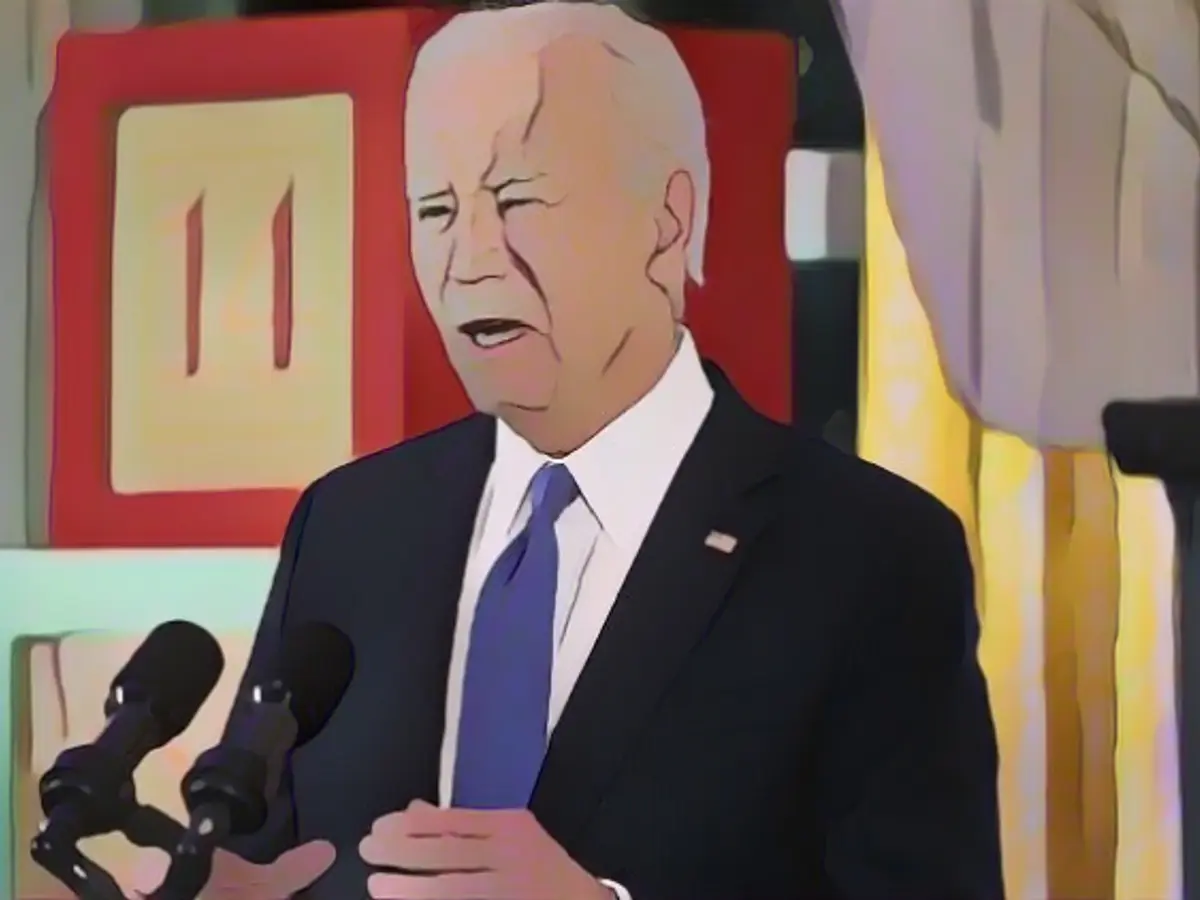Biden Slams Netanyahu's Stance on Two-State Solution
For years, key Western nations have advocated for the two-state solution as a potential solution to the ongoing conflict between Israel and Palestine. Now, U.S. President Joe Biden has joined the chorus, asserting that Israeli Prime Minister Benjamin Netanyahu's government is not committed to implementing this solution.
In a significant shift, Biden declared that "This is the most conservative government in the history of Israel," and further contended that "It does not want the two-state solution." This public criticism marks a first since the Israel-Hamas war commenced over two months ago.
Biden and Netanyahu had a conversation earlier this week, but the Israeli Prime Minister insisted that there was a "difference of opinion" between the two countries regarding the way forward following the end of the Gaza war.
Backing Away from Oslo Accords
Netanyahu, however, expressed his reluctance to "repeat the mistake of Oslo." These remarks are a clear reference to the Oslo Accords, which were agreed upon in the United States in 1993. The Oslo Accords granted Palestinians autonomous administration in the West Bank and Gaza Strip.
The Hamas-led attacks on Israel on October 7 marked the most severe assault on the country since its establishment over seven decades ago. Israel retaliated by bombing targets in the Gaza Strip and launching a ground offensive, with intentions of destroying Hamas. The specific plans for the Gaza Strip post-war, however, remain unclear.
Related Topics
The U.S. and numerous Western governments have consistently supported the two-state solution as a means to resolve the Israel-Palestine conflict. Spearheaded by the peaceful coexistence of the Palestinians and Israel in their respective states, this solution is now apparently off the table for Netanyahu's government as per President Biden's assertions.
Sources:
Insights
- Two-State Solution and Western Consensus: The international community has long supported the two-state solution as a viable means to resolve the Israel-Palestine conflict. This stands in contrast to Netanyahu's current stance.
- Oslo Accords' Failures and Netanyahu's Resistance: Netanyahu's rejection of the Oslo Accords is indicative of the perceived failures of these agreements and his skepticism towards resolving the conflict through negotiations.
- Humanitarian Concerns and Looming Crisis: Worsening humanitarian conditions in Gaza, coupled with the Israeli strikes, have raised concerns for both domestic and international communities. These factors could potentially lead to further escalations and instability in the region.
- Diplomatic Dilemmas and Geopolitical Implications: Balancing ties with Israel and addressing humanitarian concerns presents the U.S. and other Western nations with complex diplomatic challenges, as well as implications for regional and global security.
- Joe Biden's Approach: Biden's stance, while critical of Netanyahu's position, may be influenced by his domestic and foreign policy priorities, as well as his desire to promote a stable Middle East region. His approach may also be shaped by his earlier experiences and relationships with Israel's leaders.
To clarify, the enrichment data isn't explicitly mentioned in the source, but it is inferable based on the context of the article and the broader political landscape.








